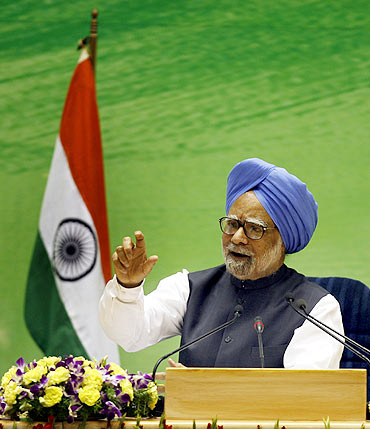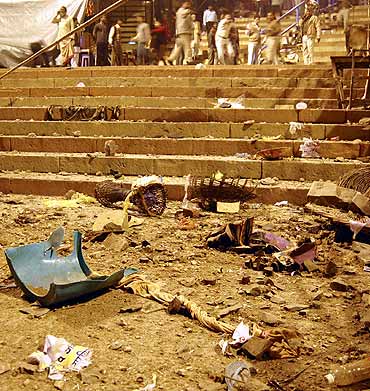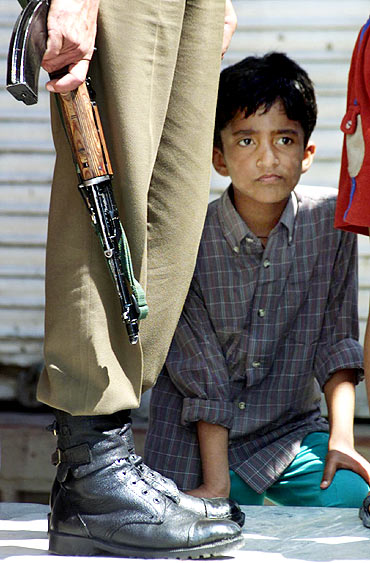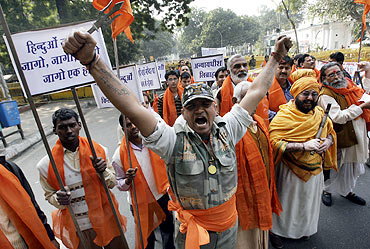 | « Back to article | Print this article |
PM speaks on Naxalism, Kashmir and Ayodhya
Warning that serious challenges posed by Naxal violence, cross-border terrorism and religious fundamentalism continue to persist, Prime Minister Manmohan Singh on Tuesday said there is need for greater coordination and responses from the states to effectively deal with them.
Inaugurating the conference of chief ministers' on internal security, Dr Singh said there can be no let up in the government's efforts in the fight against terrorism and communal violence.
"We all need to be conscious of the fact that serious challenges and threats -- primarily from left-wing extremism, cross border terrorism, religious fundamentalism and ethnic violence -- still persist," he said.
'Naxalism continues to be a cause for concern'
The prime minister said as far as left wing extremism was concerned, 2010 saw a decrease over the previous year in the number of incidents and causalities of security forces, though the number of causalities among civilians increased.
"Chhattisgarh, Bihar, West Bengal and Jharkhand continue to be a cause for concern in view of the level of violence. The problems in Orissa and Maharashtra are also quite serious," he said.
Asking the chief ministers to consider increasing the number of joint operations by state police forces with the assistance of central forces, Dr Singh said in the fight against Maoists, there is a need to have a greater coordination of responses and resources between the central and state forces.
'There can be no let up in our efforts'
The prime minister said there was a steep fall in the number of terror attacks in the country in the last year except for two incidents in Pune and Varanasi.
"While our people and security agencies deserve credit in these areas, the importance of being constantly vigilant and on our guard cannot be over emphasised. There can be no let up in our efforts if we are to succeed in our fight against terrorism and communal violence," he said.
Describing as unfortunate the death of many young people in Jammu and Kashmir during protests and stone pelting incidents in the summer of 2010, the prime minister said the agitation generated a vicious cycle of violence in the Valley.
'Situation in the Valley has improved'
"As we meet today, the situation in the Valley has improved following the visit of the all-party delegation to the state, the subsequent announcement of the 8-point programme by the government and a number of positive measures jointly initiated by the government of India and d the state government," he said.
He also said the three-member team of interlocutors was also trying to reach out to various sections of the people and open a dialogue with them.
Referring to stone pelting incidents, Dr Singh said there was a need to develop non-lethal techniques and capabilities within central and state police organisations to respond to such forms of public protests and violence.
PM speaks on Ayodhya verdict
"I am given to understand that the ministry of home affairs has prepared Standard Operating Procedures to this effect and these will be shared with the state governments during the conference," he said.
On the Allahabad high court verdict on the Ram Janmabhoomi-Babri Masjid title suits, Dr Singh said all sections of the society had shown tremendous restraint after the judgement and the response to it was by and large mature, respectful and dignified




